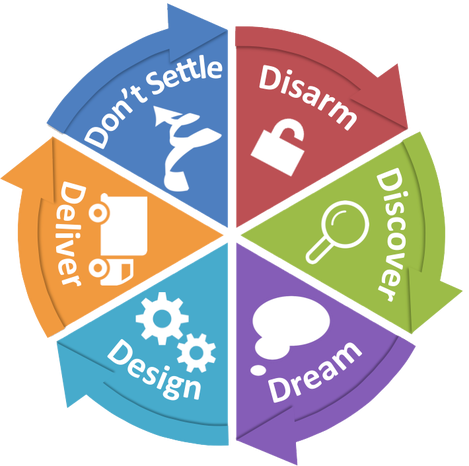Louise Jones, PhD, MEd – Director of Research & Scholarly Activity
We have discussed the responsibilities of a mentor, so now let’s explore the mentee duties!
Summary of Mentee Responsibilities
“Appreciative Inquiry is the cooperative search for the best in people, their organizations, and the world around them . . . AI involves the art and practice of asking questions that strengthen a system’s capacity to heighten positive potential”
(Cooperrider & Whitney, 1999, p. 10).
Make at least six scheduled appointments with your mentor – plan ahead! Go to each appointment prepared with your goals, your questions and your plans for the following months.
“I often recommend completing the metacognitive awareness inventory each month to reflect on resident study ups and downs and to learn how to maximize the influence of metacognition.”
Louise Jones, PhD, MEd
I encourage mentors and mentees to go through the appreciative advising framework:

Disarm: What went right, what is your “why”, refine the dream.
Discover: Have the residents completed Gantt chart pulled up and discuss the objective goals met and unmet from the previous month.
Dream: problem solve and vision cast for the month ahead. What would happen if you could achieve “x” this month?
Design: Together, start applying all of the dreams and visions to a practical plan grounded in achievable goals and livable steps.
Deliver: Residents, come prepared to make commitments and articulate actual step-by-step processes to support your goal achievement. Be ready to identify a set of month long goals and weekly steps to achieve that goal. Translate all the talking and planning into a month long learning contract. Set up times for text check-ins during the month! This will provide you with plenty of material to edit and hone until you have a practical plan to succeed!
Finally, the mentee is responsible for being open, transparent, and teachable. When the session begins to wind down and you are both at the Destiny stage, it is time to transition back to independent back-up plans and accountability support, so that the resident can “make it so.”
Some Examples…
Each month, it helps to have a topic and a question number target. For example, our Internal Medicine program has aligned one of the ABIM blueprint topics to each month. All the residents across all rotations are then able to intentionally study together and create connections between what they are studying and what they are rotating through – those are the connections that help to problem-solve! Learning theorists already know that quizzing is one of the best ways for an individual to further consolidate knowledge and importantly, strengthen those retrieval pathways. This actually translates into the number of practice questions attempted as an indicator of how well a resident will do in their high stake’s examination.
Our Internal Medicine program has provided everyone with MKSAP materials and our General Surgery program uses Truelearn. Whatever your platform, mentors, and mentees can agree on a weekly target and an approach to meeting that target – all on the monthly topic assigned.
Self-Authorship
These resources give us great faculty analytics “behind the scenes” so the mentor can pull the analytics and go through the trends, strengths and opportunities with the mentee. This becomes a journey of two, rather than an isolating and often demotivating experience for the residents.
One of the things I LOVE about appreciative advising, is the idea that the mentor is guiding the mentee toward self-authorship. A place where emphasis is on helping the early career physician develop their own strategies for career and life success through a dynamic that honors the residents knowledge and capacity for autonomy.
Even more than that, appreciative advising provides a framework that epitomizes that quote we talked about in our first session:
“If you want to travel fast, travel alone; if you want to travel far, travel together”
Mentoring is not about co-dependency; it is about harnessing the strength and power of a traveling companion who has been that way before. I always think that this type of support system is very natural to physicians. At the end of the day, strength for the next day often comes from knowing that your colleagues genuinely care about you, your story, and your progress through this complex career – that they want to “travel far” with you.
That is strength.
That is caring.
That is medicine.
To learn more about the programs at Northeast Georgia Medical Center, visit ngmcgme.org.
